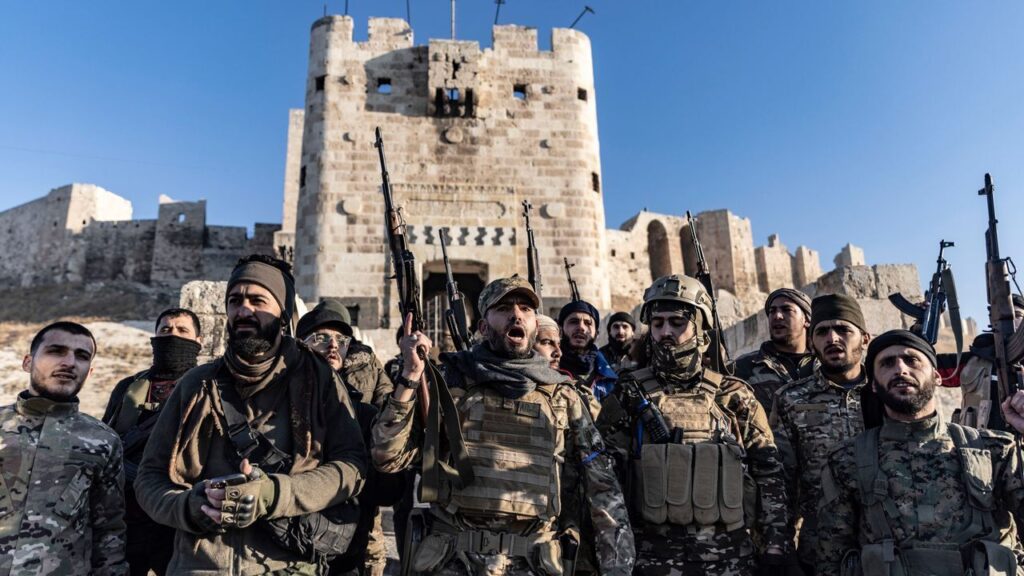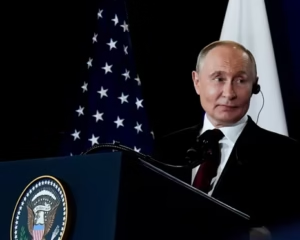Syrian and Russian Airstrikes Intensify on Rebels Following Opposition’s Control of Large Parts of Aleppo
Publisher December 2, 2024 0
Syrian and Russian air forces have dramatically intensified their bombing campaigns against opposition forces in northern Syria, following a surprise and successful rebel offensive that has resulted in significant territorial gains, including the capture of Aleppo, Syria’s second-largest city. The offensive, led by a new coalition of rebel groups known as the Military Operations Command, has caught the Syrian government off-guard, as it has faced minimal resistance from regime forces. Rebel fighters have taken key strategic sites across Aleppo and Idlib provinces, including Aleppo’s main airport, and have rapidly advanced into the city’s eastern regions.
The rebel victory has marked a major turning point in the ongoing civil war, posing one of the most significant challenges to President Bashar al-Assad’s regime in years. For the past eight years, Russian air support had played a crucial role in reversing rebel advances and consolidating Assad’s control over large portions of Syria. However, this recent rebellion is being led by a new coalition, which has gained significant ground, further complicating Assad’s efforts to maintain power.
In an effort to counter the rebellion, Syrian government forces, supported by Russian airstrikes, have launched a series of bombing raids on opposition-held positions, particularly in Aleppo, Idlib, and Hama provinces. Russian and Syrian military officials have claimed that their air forces have intensified attacks on rebel “terrorist” positions and their supply lines, resulting in several casualties. A Russian airstrike on Sunday near Aleppo University reportedly killed at least four civilians, while another strike on the previous day killed several people in a public square in western Aleppo. Additionally, a Russian bombing raid damaged a Franciscan convent in Aleppo, although no injuries were reported.
The White Helmets, a volunteer rescue group operating in opposition-held areas, reported at least four deaths from airstrikes in Idlib, a province now entirely under rebel control. The intensifying violence and military actions have escalated the already dire humanitarian situation in the region, where millions of people have been displaced since the start of the civil war.
In response to the rapid advances by the rebels, Assad has vowed to continue defending Syria’s territorial integrity. In his first comments since the rebels took significant parts of Aleppo, Assad reaffirmed his commitment to combatting what he referred to as “terrorists” and declared that Syria, with the help of its allies, would defeat the opposition forces. Assad also assured Iran’s foreign minister, Abbas Araghchi, during a meeting on Sunday, that his government would continue fighting with “all force and determination” to regain control of Syria’s territory.
This new phase in the civil war has sparked renewed international concern, as it marks the most significant escalation since the ceasefire brokered between Russia and Turkey in 2020. The conflict, which has already killed more than 300,000 people and displaced millions, shows no signs of de-escalating. The opposition’s rapid advances highlight the power struggle between various factions, including Turkish-backed groups, Kurdish forces, and Islamist factions like Hayat Tahrir al-Sham (HTS), a group with former al-Qaeda ties.
The growing influence of Turkey and the shifting balance of power in Syria have created challenges for Western governments, who must navigate a complex and evolving conflict. While the U.S. and its allies have supported some factions in the past, particularly the Syrian Democratic Forces (SDF), their position is complicated by the increasing involvement of Islamist groups in the opposition. These groups, which include former U.S.-backed forces, now control large parts of Syria and have clashed with the Kurdish-led SDF.
The situation is further complicated by the Turkish-backed Free Syrian Army, which has been involved in clashes with Kurdish forces. The Free Syrian Army, which is part of the broader rebel coalition, claimed responsibility for seizing several towns and villages in northern Aleppo that were previously controlled by the Syrian Democratic Forces. This shift in territorial control highlights the deepening divisions within the opposition and the growing involvement of Turkey in shaping Syria’s future.
As the situation unfolds, it is clear that Syria’s civil war is far from over. The increasing territorial gains by the opposition forces, combined with the intense airstrikes from Syrian and Russian forces, point to a prolonged and devastating conflict. With multiple foreign actors involved and shifting allegiances, the future of Syria remains uncertain, and the prospects for a lasting resolution to the war seem increasingly distant.







